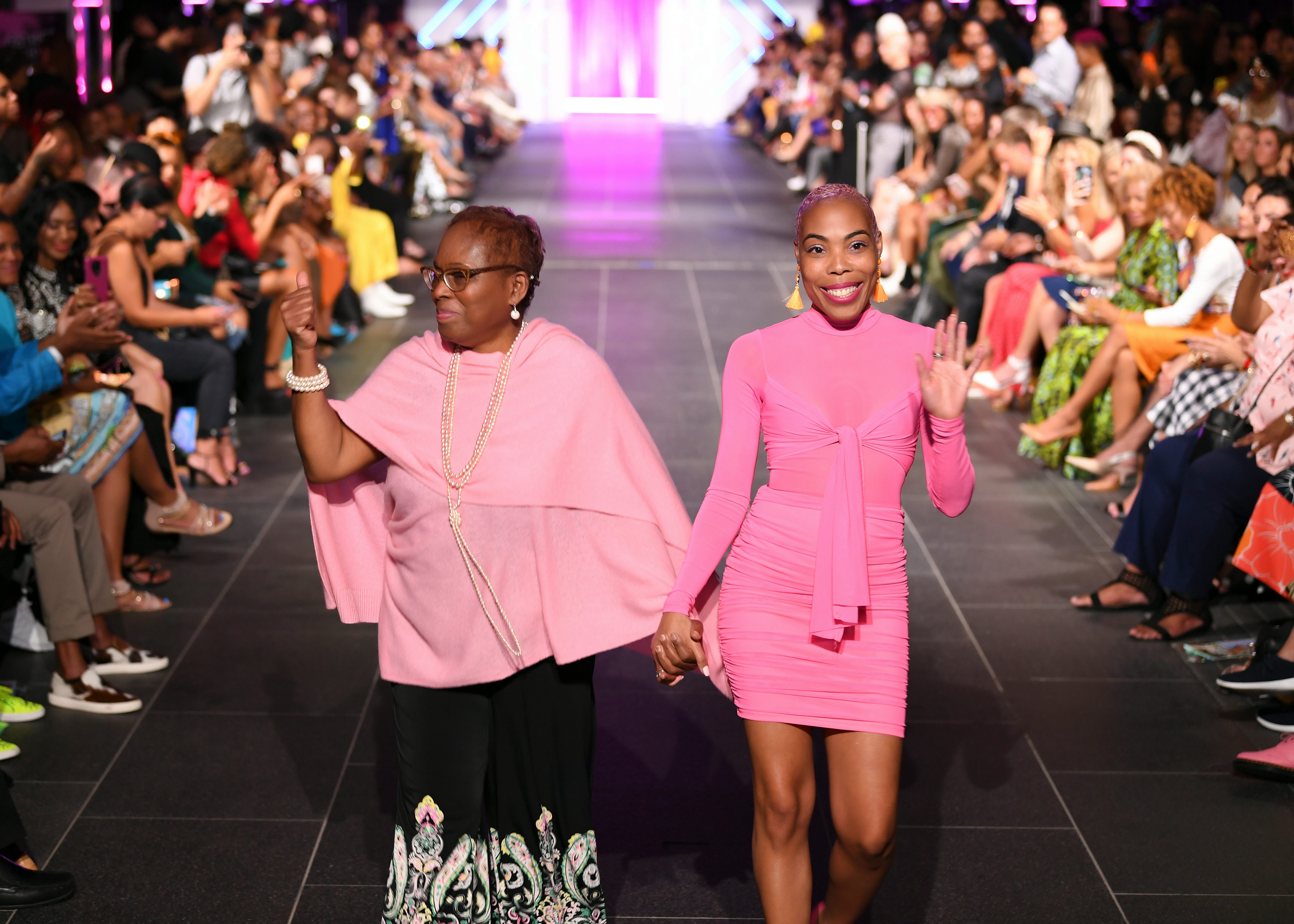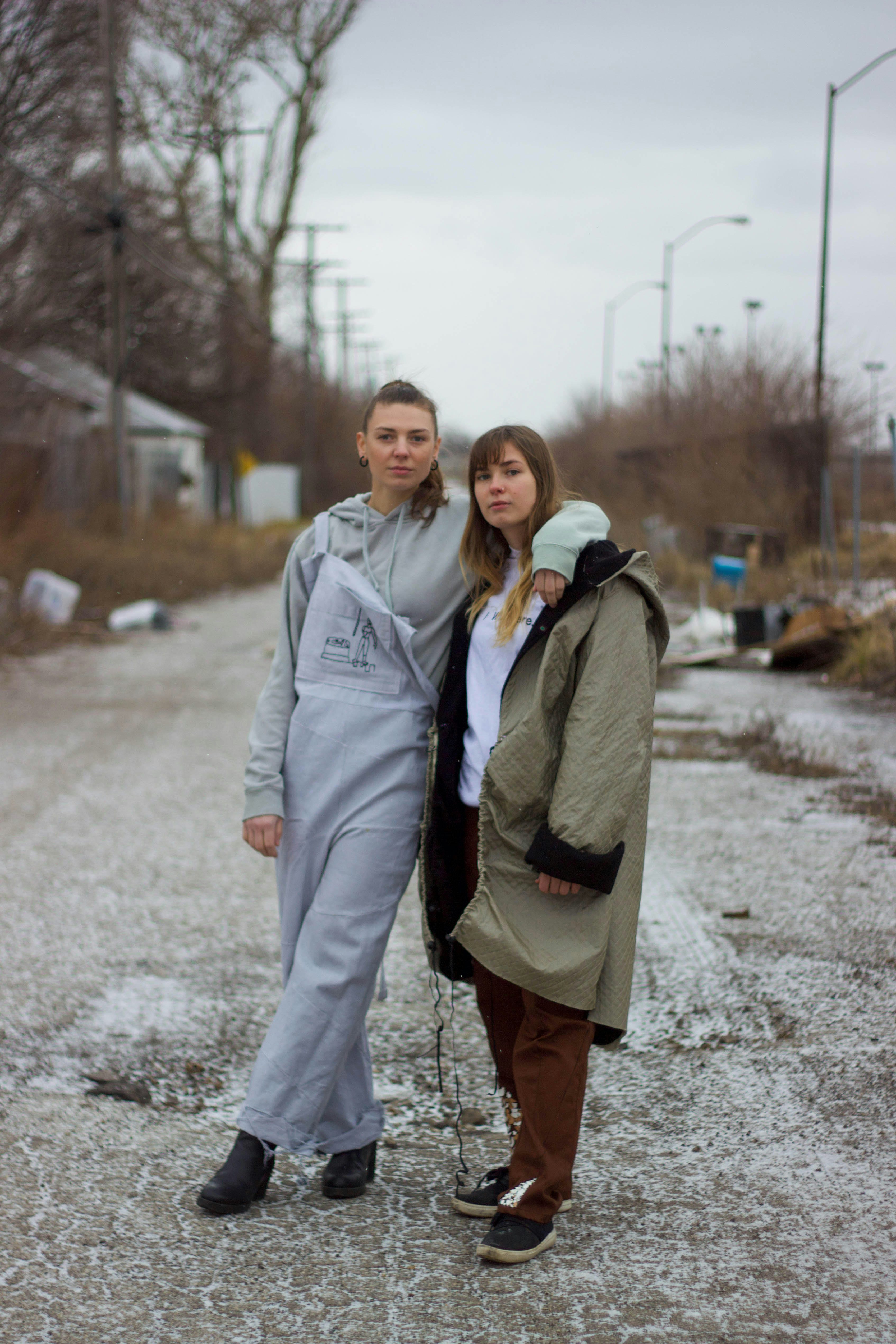Is Insider Support Still Important to Outsider Designers? | BoF Professional, This Is America, News & Analysis
Last summer, the Washington, DC-based Dur Doux, a micro-maker of frothy gowns and glitzy separates since 2013, started attracting attention beyond their core constituency of local ladies.
It wasn’t so long ago that the mother-daughter duo behind the label, Cynthia and Najla A. Burt, were told that, as a Black-owned brand with limited funding and few industry connections, they would never manage to secure an appointment, let alone an account, with a major retailer like Neiman Marcus or Saks Fifth Avenue.
But their fortunes changed last June, in the midst of the Black Lives Matter protests, when they first met with Council of Fashion Designers of America (CFDA) chief executive, Steven Kolb, who introduced them to a host of industry insiders, including Intermix chief merchant Divya Mathur. She became their mentor through RAISEfashion, a programme launched in July by executives looking to lift Black-owned brands in response to the social upheaval sweeping the country.

Dur Doux co-founders Cynthia and Najla A. Burt. Dur Doux.
By September, Dur Doux was on the New York Fashion Week schedule, and a few months later, the label was featured in print in American Vogue as part of the magazine’s survey of American fashion brands beyond New York City.
“For the most part, there has been a willingness… a human commitment to understanding [us],” Cynthia Burt said.
Dur Doux is not the only outsider label to have received newfound recognition over the past year. Suddenly, brands often omitted from the mainstream fashion conversation — whether because of cronyism, geography, lack of financial backing or systemic racism — were being noticed by the New York-based establishment.
This group of editors, buyers and other industry gatekeepers, who have long dictated what was fashionable and what was not, were suddenly under pressure from consumers, activists and advertisers to spotlight more diverse talents and business models. While the pandemic made it harder than ever for most brands to grow, it unexpectedly opened doors for some that were never given a chance in the first place.
A shift in mindset among America’s traditional fashion gatekeepers had already begun before 2020, said Vogue fashion director Virginia Smith, who helped conceive the February issue’s “United States of Fashion” package alongside her colleagues in editorial and art.
“For years, in the US, it was very New York-focused; you came here to attend a design school, [etcetera], and that’s just not how it is anymore,” Smith said. “There’s no longer just one way, there’s every way: and a new freedom of participating on your own terms.”
The pandemic, which exposed so many rots in the system, only made that clearer. For some designers, it also signalled new opportunities.
Detroit-based, gender-fluid line Deviate, founded by sisters Kelsey and Cassidy Tucker in 2018, began producing clothes for other labels in the local factory they own and operate in 2020 after the CFDA listed them as a sustainable US manufacturer. As a result, they were also able to further develop an incubator programme for local women and minority designers who, too, wanted to launch their own brands.
The attention helped boost their own label as well. With retail partners and the increased production in their factory, including personal protective equipment, the sisters had their best year yet in terms of revenue, up 30 percent from 2019.
There’s no longer just one way, there’s every way: and a new freedom of participating on your own terms.
“As a business, we need to be profitable and successful, and a fast track to having those things is industry recognition,” Cassidy Tucker said.
And yet, it’s clearer than ever that the establishment can only do so much for designers.
For Dur Doux, the last year has brought a big lift in editorial exposure: seven cover credits, including Guardian Weekend and L’Officiel UK. It has also helped that there is renewed interest in Washington, DC’s style scene now that the Biden-Harris administration is up and running — and using its platform to promote American businesses. Sales are up 30 percent in 2021 thus far. But the label has yet to secure a major retail partner, hoping that their recent appearance at New York Fashion Week will help. They are also participating in RaiseFashion’s virtual showroom through the Joor platform.
“You can get a lot of publicity — all these celebrities — and still not make it into major retail stores,” Burt said. “You need to be able to sell to survive, and for a lot of Black-owned businesses, people are not running out to give them loans.”

Deviate founders Cassidy and Kelsey Tucker. Deviate.
While Detroit’s Deviate did see an uptick in interest from retailers this past year, they also have experienced the downside of that attention.
“You often have no control over the way your brand is presented,” Tucker said. “But as an up-and-coming brand, we have to play by those rules.”
Deviate has had the best experience with a local boutique called Détroit is the New Black, which positions local emerging designers next to established lines including Helmut Lang and Tracy Reese, who relaunched her once-New York-based label out of the city in 2019.
Stefan Siegel, founder and chief executive of independent designer platform Not Just a Label, which features many brands suddenly poised for mainstream recognition, said that while traditional markers of success like editorial coverage and retail representation are nice-to-haves, they are no longer a requisite. While it’s still next-to-impossible to scale without financial backing, designers can build niche businesses through marketplaces and their own channels.
“Whatever awards you look at, whatever fashion council, there’s always been favouritism and nepotism,” he said. “What’s changed is that the economic parameters have broadened, allowing brands to do their own thing.”
That’s not to say it’s any easier. Today, the most successful emerging labels — operating both inside and outside of the system — connect directly with their consumers to tell their stories and sell their clothes. While Dur Doux’s business is primarily direct-to-consumer — through its website and private clients — they have a lot of work to do in building their online presence, with just over 20,000 Instagram followers. Deviate, with just under 25,000 followers, faces the same challenge. (Right now, 45 percent of their label’s sales are direct.) Building an audience on these platforms can be expensive, even if you’re not paying for customer acquisition. But it’s essential to survival.
That said, recognition of any sort can boost a designer’s confidence.
For Dur Doux, “We feel like we’ve been given permission to believe that we are a true luxury brand,” Burt said. “We don’t have to feel like we’re shut out.”
Related Articles:
Where Do Independent Fashion Brands Go From Here?
Retailers Pledged Action on Diversity. Delivery Is Proving More Elusive.

